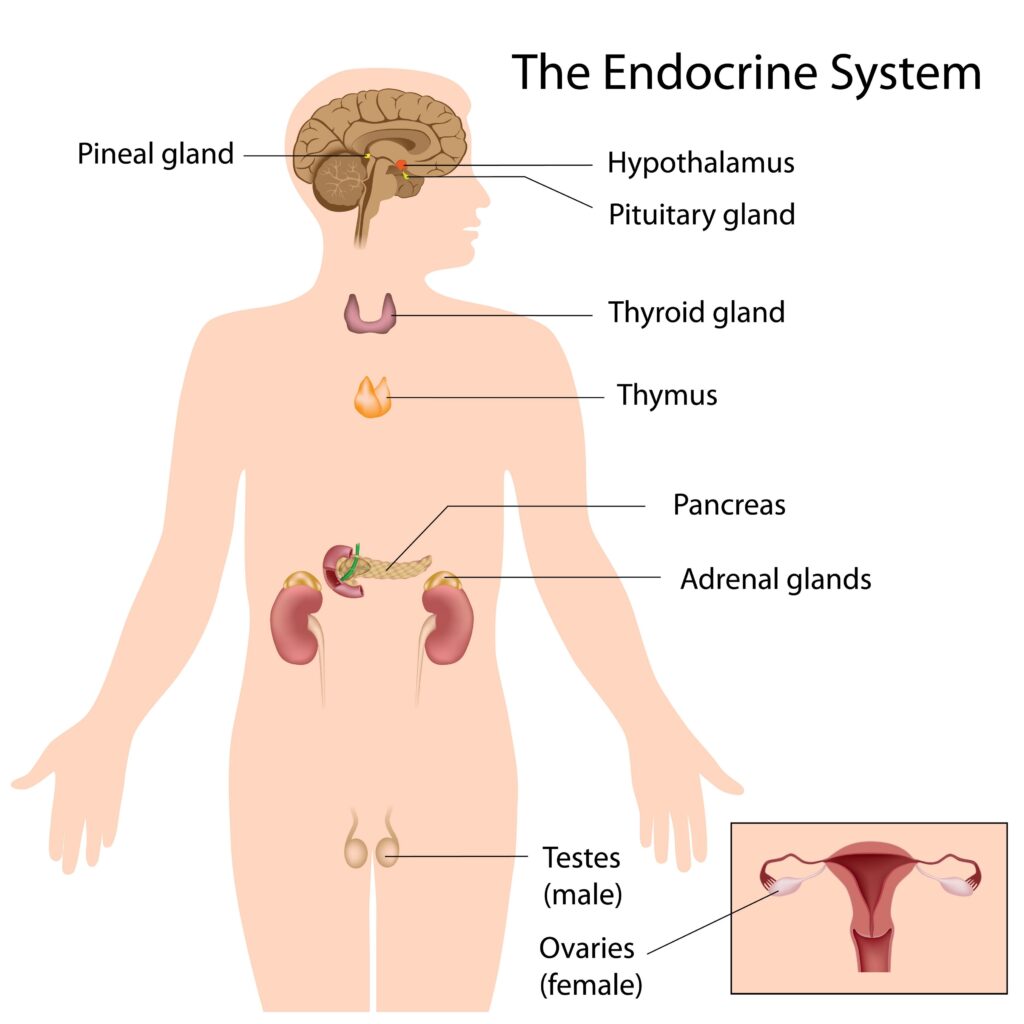WORDS: Alyce Cimino | Naturopath

Our Endocrine system is incredibly intricate, each and every day we are dealing with a delicate balance of rise and fall of hormones. The endocrine system is responsible for the release of hormones in our body, its role, amongst many other things is to influence our metabolism and weight, sex hormones, reproduction and, growth.
When there is disturbance to our endocrine system we start to see changes to our body. They can be small and subtle changes that tend to worsen over time. Another consideration about the endocrine system is that does not work in isolation. If other body systems are not working optimally it will start to influence our hormones – this is particularly true for our digestive and elimination pathways.
So, let’s have a look at 6 key symptoms that show us that perhaps your endocrine system isn’t working as well as it could be. These symptoms are based primarily for women, though there are some points that are applicable for men as well.
- MOOD CHANGES WITH YOUR CYCLE:
In the clinic, this is one we are seeing a lot of at the moment, in part due to awareness which I’m absolutely loving! but also I’m thinking due to the level of burnout at the end of last year, our bodies are still feeling it and it is now showing up in our menstrual cycle as well.
When we are experiencing disbalance our monthly hormonal fluctuations can heighten our emotions as well. For some women, this can be lower moods or heightened irritability prior to a bleed. - IRREGULAR MENSTRUAL CYCLES:
High cortisol response from prolonged stress can affect the body by lowering the production of oestrogen levels. In women, oestrogen maintains our reproductive system and regulates processes like menstruation, ovulation, cycle length, and regularity as well as our mood, weight, and symptoms such as hot flashes and night sweats.
Oestrogen also affects our progesterone production, this is produced as a result of ovulation so if one isn’t working correctly the other will also be affected.
An ideal menstrual cycle is 28-30 days in length, with a 4-5 day bleed and free from pain. - ALL DAY FATIGUE:
Fatigue can be due to a number of factors, including poor gut health, poor nutritional intake and digestibility of nutrients. It can also be a sign that your endocrine system isn’t getting enough support of what it needs.
A telltale sign that it may be your endocrine system is fatigue all morning, and all day, but when you hit the evening you start to burst with energy. From there you have troubles falling asleep and staying asleep and so the cycle goes on and on. - CHANGES TO WEIGHT:
Now often we think of changes to weight as weight gain, but rapid weight loss can also be a sign of dysbalance.
High stress (high cortisol) can decrease our insulin response, and in turn how our body can use food sugars and convert them into energy for our body to utilise.
We also know that the thyroid plays a crucial role in this area, as it is a thermostat in the body, responsible for our energy levels, metabolism, hormone release, and even temperate control! - SKIN HEALTH AND APPEARANCE:
Monthly pimples? pimples on your back and chest? yep, it’s time to look at your hormones! For women we can use changes in our skin health throughout the month as a report card for what is going on the inside. - LOW LIBIDO:
This one is particularly true for men and women. If you are experiencing low libido we can look directly at your endocrine system (and nervous system) for answers. A healthy libido means that your hormones are doing exactly what they need to be in order to create that response. This is a big on in fertility as well, if you don’t have the drive there – let’s ask why? could it be that you are so exhausted that your body simply doesn’t have time for that? or could it be low testosterone playing its role and not having enough oomph for the cause.
If you are experiencing any of these signs, it may be time for a check in! Start by speaking to your health practitioners about a whole body check-up – PATHOLOGY TEST INCLUDED! For women this may mean a few blood tests or different forms of tests to pick up the right hormones at the right times. So make sure you speak to your practitioner before running the test.
This information is a guide only, not intended as medical advice.
Alyce x
